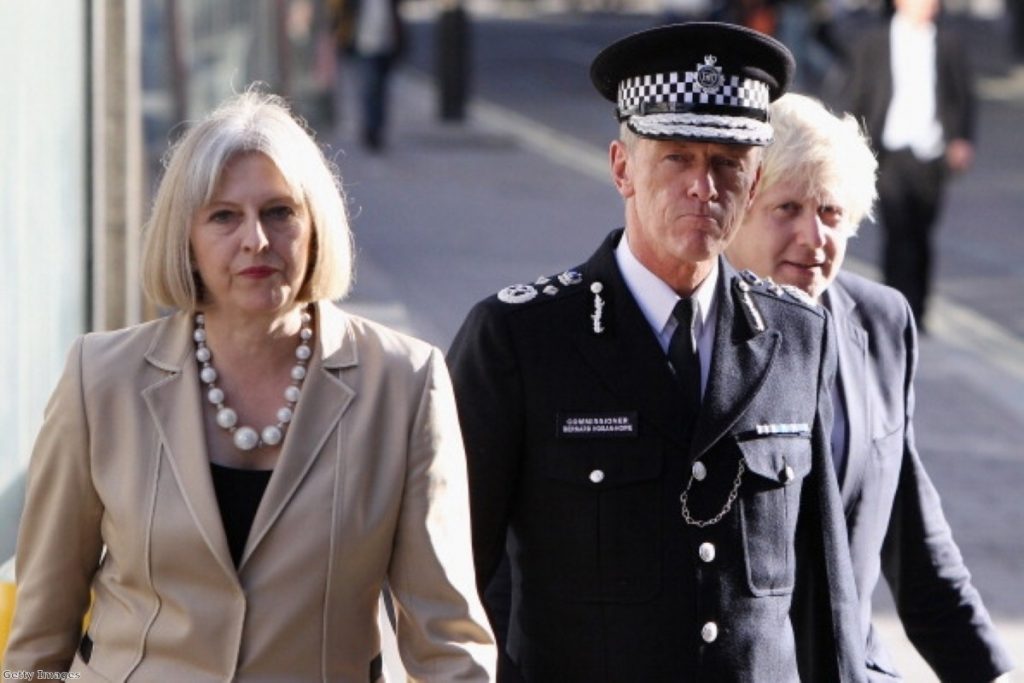Stop-and-search ‘highly intrusive’
By Alex Stevenson Follow @alex__stevenson
The police complaints watchdog has hit out at stop-and-searches, after the Metropolitan police signalled a retreat in its use of the controversial measure.
Met police commissioner Bernard Hogan-Howe has made clear he wants to reduce the extent to which officers are authorised to conduct the searches in a bid to win back public support for the police in the capital.
The move did not stop the Independent Police Complaints Commission's Mike Franklin from hitting out at the use of the divisive measure, however.


"The IPCC recognises that police powers to stop and search individuals exist, officers will use them and indeed the majority of officers carry out their duties and exercise these powers in a considered and professional manner, in sometimes very difficult and demanding circumstances," Mr Franklin said.
"However, this is not always the case and we believe the use of stop and search can be highly intrusive especially where it does not result in an arrest and no proper explanation or justification given it can significantly undermine the individual’s and wider community confidence in policing."
Around 51,000 searches took place last year, resulting from 1,753 authorisations known as 'section 60' orders derived from the Criminal Justice and Public Order Act 1994. It is the authorisations which are being targeted by police, the Met says.
Mr Hogan-Howe has backed the "implementation of a new approach which will see a dedicated, experienced central team lead a wide range of changes affecting every element of stop and search with the aim of improving policy, practice and performance across the board".
He said yesterday that more training and education would help officers decide when to target searches and deal with hostile encounters with members of the public.
"Even if we end up with a resistance, we come out of that better if we remain professional and cool and calm, and sometimes we're not able to manage that," the commissioner acknowledged.
Only six per cent of stop-and-searches lead to an arrest. The number of convictions is much lower.
Commander Tony Eastaugh, who will lead the change at the Met, told the Today programme: "When… members of the public who have been stopped are informed as to why they are stopped with proper grounds and proper rationale, then we have their mandate and support to be able to continue stop and search across the communities of London."
Police officers are empowered to search members of the public, according to the Met's website, if they suspect someone of carrying a weapon, drugs or stolen property; if there has been serious violence or disorder in the vicinity; if they are looking for a suspect with a physical resemblance; and as part of anti-terrorism efforts.









